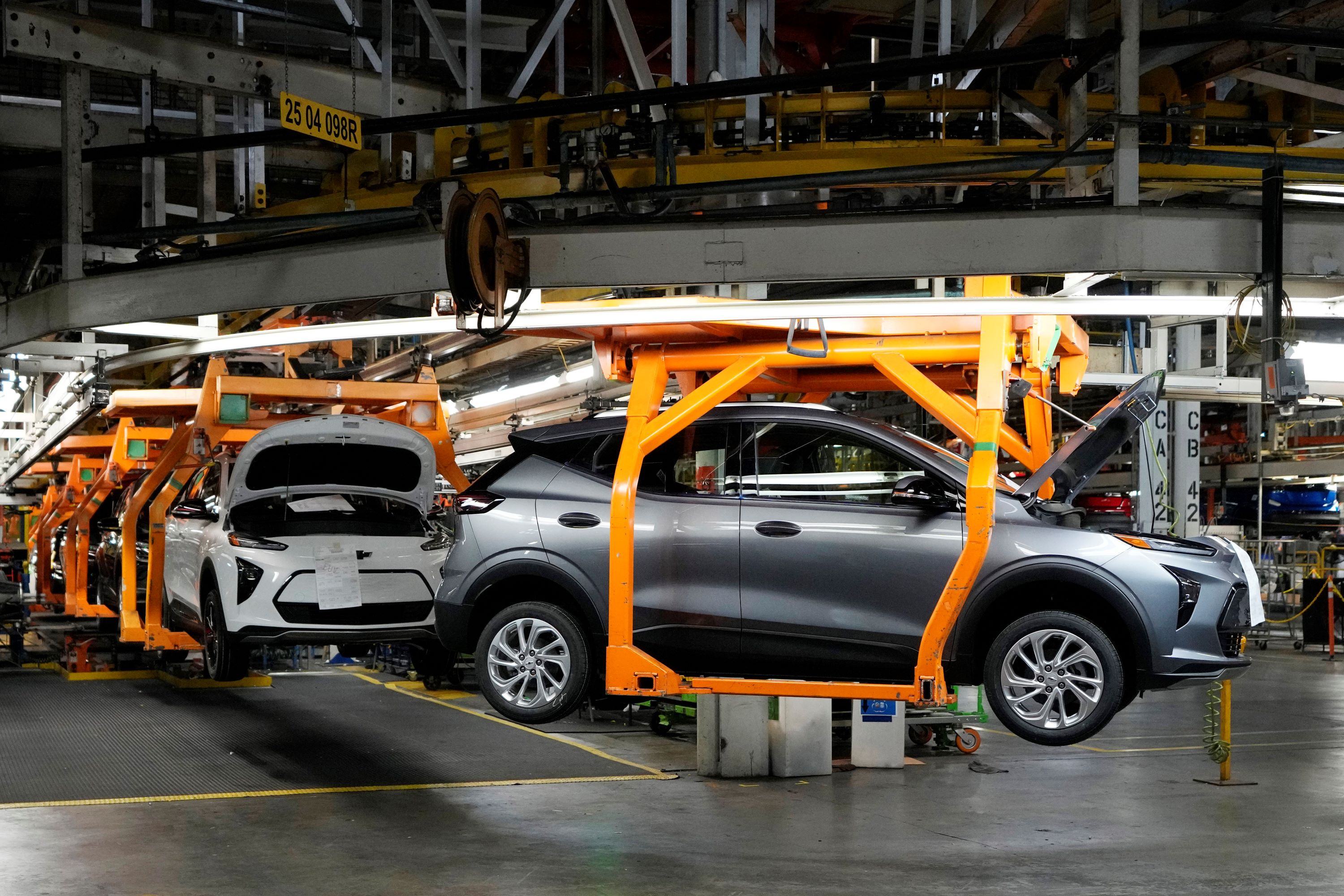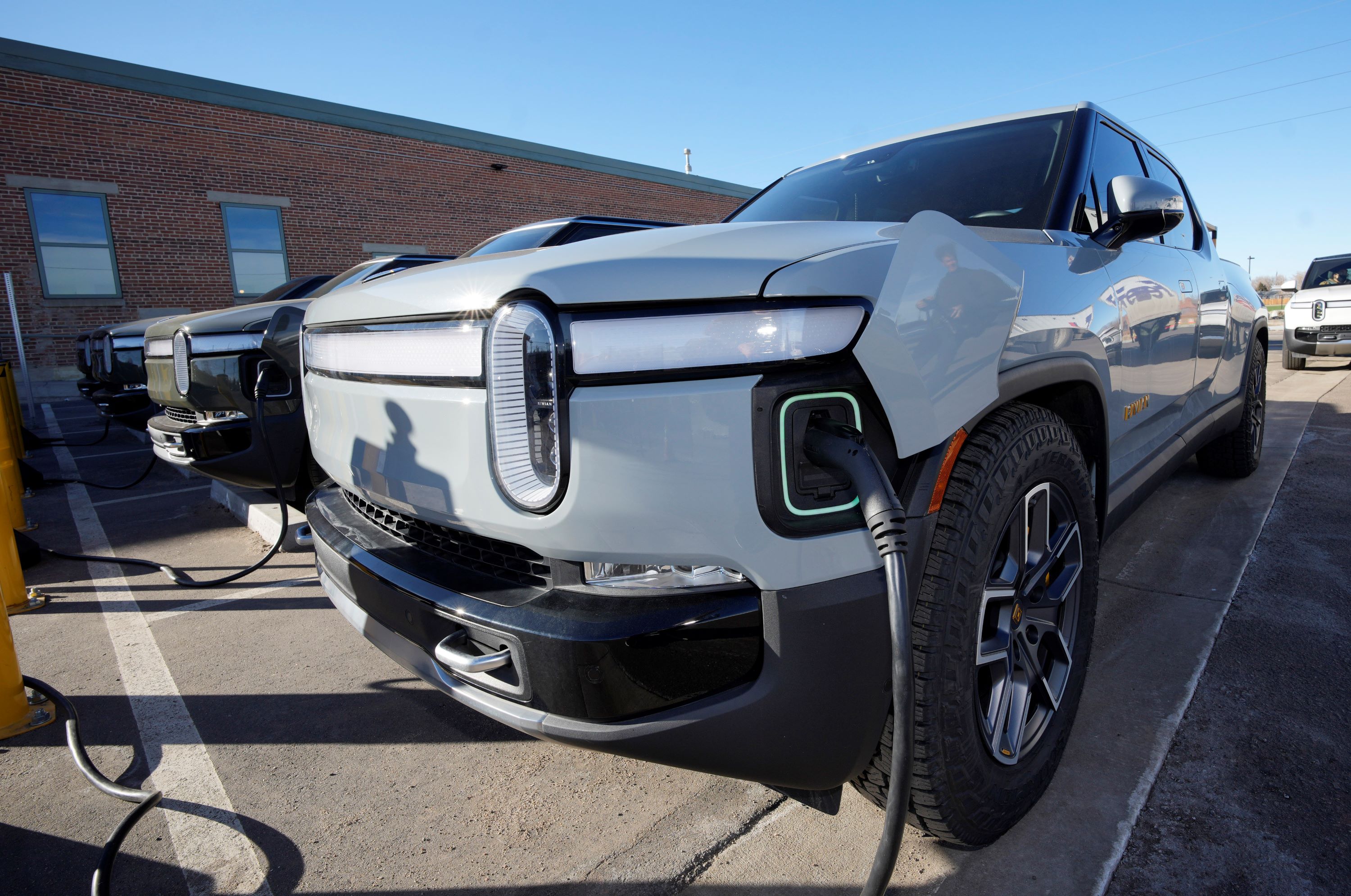
Incoming US President Donald Trump’s transition team is recommending sweeping changes to cut off support for electric vehicles and charging stations and to strengthen measures blocking cars, components and battery materials from China, according to a document seen by Reuters.
The recommendations, which have not been previously reported, come as the US electric-vehicle transition stalls. On the campaign trail, Trump vowed to ease regulations on fossil-fuel cars and roll back what he called President Joe Biden’s EV mandate.
The transition team also recommends imposing tariffs on all battery materials globally, a bid to boost US production, and then negotiating individual exemptions with allies, the document shows.
ALSO READ: Trump, SoftBank CEO announce $100b US investment, in echo of 2016 event
Taken together, the recommendations are a stark departure from Biden administration policy, which sought to balance encouraging a domestic battery supply chain with a rapid EV transition. The transition-team plan would redirect money now flowing to building charging stations and making EVs affordable into national defense priorities.
The proposals came from a Trump transition team charged with crafting a strategy for swift implementation of new automotive policies. The team also calls for eliminating the Biden administration’s $7,500 tax credit for consumer EV purchases, a plan that Reuters first reported last month. The policies could strike a blow to US EV sales and production at a time when many legacy automakers, including General Motors and Hyundai, have recently introduced a wider array of electric offerings to the US market.
READ MORE: Trump loses bid to toss hush money conviction on immunity grounds
Cutting government EV support could also hurt sales of Elon Musk’s Tesla, the dominant US EV seller. But Musk, who spent more than a quarter-billion dollars helping to elect Trump, has said that losing subsidies would hurt rivals more than Tesla.
The transition team calls for clawing back whatever funds remain from Biden’s $7.5 billion plan to build charging stations and shifting the money to battery-minerals processing and the "national defense supply chain and critical infrastructure”.
While batteries, minerals and other EV components are “critical to defense production”, electric vehicles “and charging stations are not”, the document says.
READ MORE: Canada finance chief quits after clash with PM over US tariffs, spending
A 2021 government report said the US military faces “escalating power requirements” for weapons and communication equipment, among other technologies. “Assured sources of critical minerals and materials” are “critical to US national security,” the report found.
Trump transition spokeswoman Karoline Leavitt said voters gave Trump a mandate to deliver on campaign promises, including stopping government attacks on gas-powered cars.

"When he takes office, President Trump will support the auto industry, allowing space for both gas-powered cars and electric vehicles," Leavitt said in a statement.
Allowing more tailpipe pollution
Automakers globally have been shifting toward electric vehicles in part to comply with stricter government limits on climate-damaging tailpipe pollution.
But the transition team recommendations would allow automakers to produce more gas-powered vehicles by rolling back emissions and fuel-economy standards championed by the Biden administration. The transition team proposes shifting those regulations back to 2019 levels, which would allow an average of about 25 percent more emissions per vehicle mile than the current 2025 limits and average fuel economy to be about 15 percent lower.
READ MORE: Trump advisers seek to shrink or eliminate bank regulators, WSJ reports
The proposal also recommends blocking California from setting its own, stricter vehicle emissions standards, which more than a dozen other states have adopted. Trump barred California from setting tougher requirements during his first term, a policy that Biden reversed.
California has asked the US Environmental Protection Agency for another waiver to incorporate a stronger set of requirements beginning in 2026, which would eventually require all vehicles to be electric, plug-in hybrid or hydrogen-powered by 2035. The Biden administration’s EPA has not approved California’s request.
Many of the transition-team proposals appear aimed at encouraging domestic battery production, primarily for defense-related interests. Others appear aimed at protecting automakers, even those producing EVs, in the United States.
The proposals include:
– Instituting tariffs on “EV supply chain” imports including batteries, critical minerals and charging components. The proposal viewed by Reuters said the administration should use Section 232 tariffs, which target national security threats, to limit imports of such products.
ALSO READ: Canada to make robust response to proposed US tariffs
– Waiving environmental reviews to speed up “federally funded EV infrastructure projects”, including battery recycling and production, charging stations and critical mineral manufacturing.
– Expanding export restrictions on EV battery technology to adversarial nations.
– Providing support for exports of US-made EV batteries through the Export-Import Bank of the United States.
– Using tariffs as a “negotiating tool” to open foreign markets to US auto exports, including EVs.
– Eliminating requirements that federal agencies purchase EVs. A Biden policy requires all federal acquisitions of cars and smaller trucks to be zero-emission vehicles by the end of 2027.
– Ending DOD programs aimed at purchasing or developing electric military vehicles.


